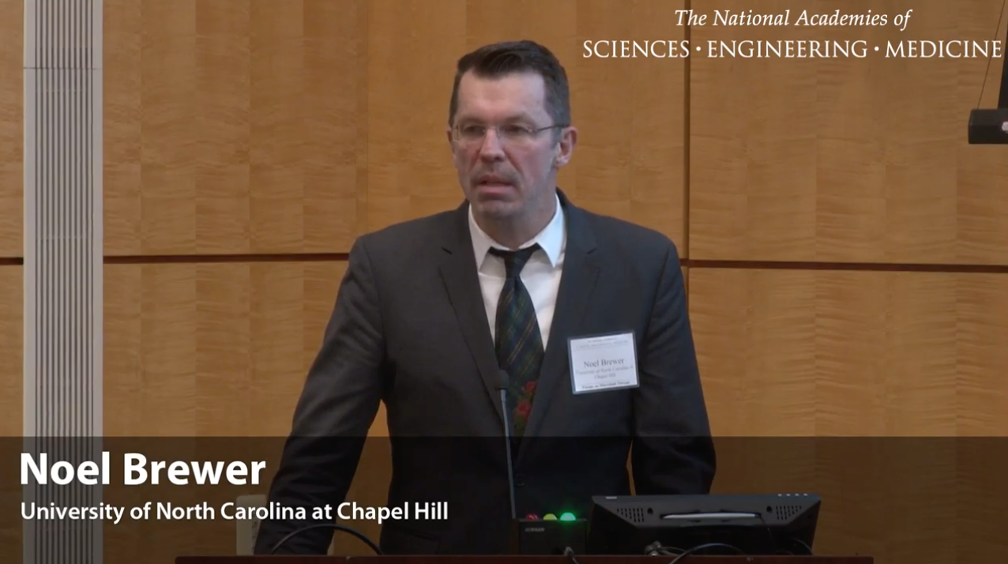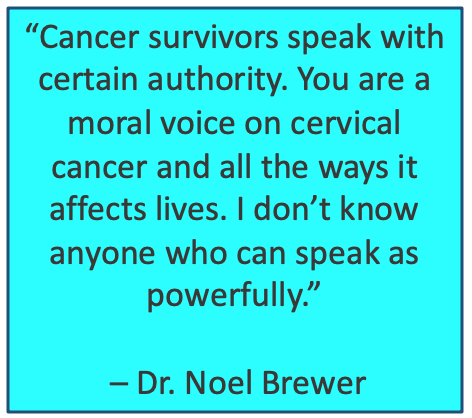March has been a crazy busy month for Cervivor and for the visibility of cervical cancer prevention. An international awareness day! An editorial in a national newspaper! A piece of legislation introduced in Congress! As the month draws to a close, here is a recap:
An International Awareness Day
The month kicked off with International HPV Awareness Day on March 4. The day featured online events, press conferences, webinars and more taking place around the world.
The awareness day may have come and gone, but the International Papillomavirus Society, the official sponsors of the day, have terrific posters and visuals you can download and share at any time. Their graphics can be be a great addition to your social media feeds!
An Editorial in a National Newspaper: USA Today
Also in March, USA Today featured an editorial on the importance of cervical cancer prevention co-authored by Cervivor founder Tamika Felder and Anna Giuliano, Ph.D., the founding director of the Center for Immunization and Infection Research In Cancer at Moffitt Cancer Center. The editorial highlighted the need for more proactive screening in uninsured/underserved communities and expressed frustration at the lowering of cervical cancer screening goals in the recently-released “Healthy People 2030” national public health initiative. The editorial offered a strong call to action:
“Decades of groundbreaking research have provided the tools to eliminate cervical cancer. Yet, every two hours a woman in the U.S. dies of this preventable cancer. It is time to stop leaving women behind and work collectively to get every woman, regardless of race, ethnicity, and socioeconomic status, up to date with cervical cancer screening. Let’s create a national goal to achieve cervical cancer elimination, a strategy for the U.S. to accomplish this goal and a revision of the Healthy People 2030 objectives.”
Share the article on your social media feeds. Make sure to highlight your personal passion for this issue and your involvement with Cervivor!
Legislation Introduced in Congress
The “Promoting Resources to Expand Vaccination, Education and New Treatments for HPV (PREVENT HPV) Cancers Act” was introduced in Congress in March. Cervivor was quoted in the press release announcing the bill. This legislation would, if enacted in the future, address many of the education and health equity needs surrounding cervical cancer prevention.
Our voices and our stories and our advocacy will be important to move this bill forward. The introduction of a piece of legislation is only the start of a long chain of legislative steps that can ultimately lead to bill passage (or not). Bill passage can take years. Bills can get folded into other legislation. Bills can get debated by committee but never elevated to the House or Senate floor for a vote. In this case, the bill was sent to the U.S. House Energy and Commerce Committee, but so far, there is no companion measure over in the U.S. Senate. So there is a long road ahead…
On the other hand, the introduction of a bill is itself a win! It means that members of Congress and their staff are paying attention to this issue, and Congressional attention can translate to media attention and enhanced media coverage. It means that there will be future conversations as the Congressional sponsors seek other co-signers and supporters. We at Cervivor, are in it for the long haul, advocating and sharing our stories.


